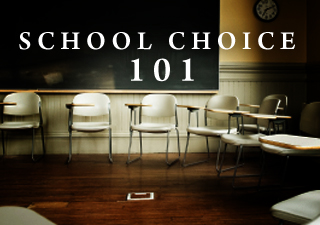Media
Common Core Questions, School Choice Answers
 A new national school standard known as “Common Core” is fast becoming known for superseding state and local authority over public education curricula. Using cutting edge data collection and analysis techniques, the program is designed to streamline K-12 education and raise our world standing in education.
A new national school standard known as “Common Core” is fast becoming known for superseding state and local authority over public education curricula. Using cutting edge data collection and analysis techniques, the program is designed to streamline K-12 education and raise our world standing in education.
Pennsylvania quietly accepted the Common Core curriculum in 2010 when most people weren’t paying attention, and it will be fully implemented by the start of the next school year.
But a comprehensive study by the American Principles Project warns of increased costs and privacy concerns as the main reasons Common Core may do more harm than good. Why did 45 states sign up for a program that requires them to, “relinquish their autonomy over public education?” Money, of course.
The federal government offered a $4 billion incentive in the form of “Race to the Top” education grants contingent on accepting Common Core standards. All but four states complied, ignoring unanswered questions of cost and quality in favor of a quick money grab.
A growing number of states have begun rethinking their commitment to the curriculum as full implementation approaches later this year, while a coalition of grassroots activists are pushing back here in Pennsylvania.
Our friends at Heritage Foundation and Cato Institute have been following Common Core since its inception and are great resources to follow as the issue develops.
When it comes to improving public education, there’s one proven solution: school choice. Giving parents the freedom to choose the best education for their child is fundamental to boosting student achievement.
That’s why the worst feature of Common Core is its one-size-fits-all approach to standards—transferring authority over to bureaucrats and test design consultants rather than families.